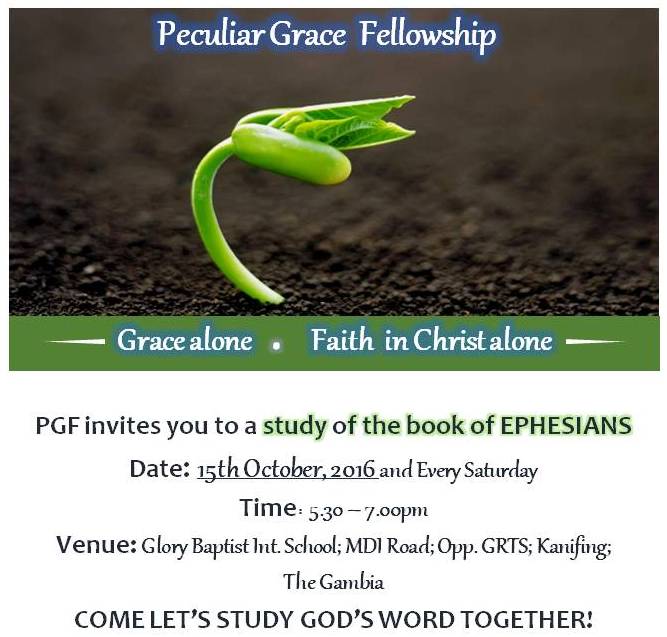
“Praise him with trumpet sound; praise him with lute and harp’ Praise him with tambourine and dance; praise him with strings and praise him with sounding cymbals; praise him with loud clashing cymbals” (Psalm 150:3-5).
Growing up in Zambia, my mother would take my siblings and me to Church every Sunday. The services lasted for hours, and what was considered worship in our local assembly was carried out in three stages: (i) Sung worship – during this session, we would sing slower songs (ii) Praise time included a combination of very tuneful and danceable songs with continuous recitations such as “we are going to Jerusalem”, and (iii) Testimony time – where people would share stories of breakthroughs and answered prayer, and all praise would go to the pastor. This was followed by a preach of some sort with little biblical exposition.
This experience left a sour aftertaste on my perception of corporate worship. I could tell that something was missing, but I couldn’t quite place my finger on it. Years later, when I began to wrestle with passages such as the opening text, it became clear to me what I could not put into words back then. While there is no fixed formula for how corporate worship is to be done, passages such as Psalms 150 allude to the important role music and praise play in gathered worship. Here is the psalmist employing musical instruments of various kinds and dancing in praise of God. Strikingly, however, it is interesting to note the abundant reference to the object of the psalmist’s exuberant outburst of praise – “to Him”! Rightly so, six times in this short passage, he calls attention to the one who alone is the object of all Christian worship and praise: God alone.
The psalmist is not alone. In Revelations 5:11-14, we are given a privileged sneak peek into the inner sanctum of heaven itself, where we find the host of angels extolling the majesty of the lamb who sits on heaven’s throne. This is what John records:
In response to this, the whole of the cosmos joins in:
“13 And I heard every creature in heaven and on earth and under the earth and in the sea, and all that is in them, saying, “To him who sits on the throne and to the Lamb be blessing and honor and glory and might forever and ever!” 14 And the four living creatures said, “Amen!” and the elders fell down and worshipped.”
Here we find worship at its purest: an expression of the worth of the Sovereign creator and redeemer, who alone deserves praise from all His creation.
This is why we were created as image-bearers: so that we will worship our Creator (Isaiah 43:21). However, because of sin, we chose to worship the creature instead of the Creator (Romans 1:25). Sadly, this is not restricted to the unregenerate alone. In almost every Church and across every generation of Christians, the potential to lose focus on things that are most important is a real and present danger and rather alarming (remember the Galatian congregation in Galatians 3:1). Therefore, we must constantly remind ourselves and re-orientate our congregations lest we entrust ourselves into other means of worship than trusting the gospel of God and the Word of God.
One of the more notable drifting dangers in most Christian congregations is within corporate worship on Sundays. In gathered worship, we should emphasise the means of grace such as sound, biblical teaching, prayer, and the sacraments or ordinances. However, there is an unfortunate tendency to rely on entertainment and man-centred worship, as I encountered during my childhood.
This is not something new in Christendom. Charles Spurgeon, the ‘Prince of Preachers’ in the nineteenth century, said,
“The devil has done a cleverer thing than hinting to the church that part of their mission is to provide entertainment for the people, with a view to winning them.”
Aiding further to this would be ‘seeker sensitive’ signs and wonders. This notion might seem new to some, but it is rapidly on the rise and popular among several congregations, with a view to supply a church suitable to an entertainment-driven culture or seeker-sensitive in its nature.
I am in no way suggesting that the Church is seen as boring or that every Christian gathering should be identical in their worship services, as though one model fits all in proper worship to the Lord. Congregational worship on Sundays is expressed in a variety of ways across cultures. Music styles, liturgies and ordinances have been developed over centuries in particular contexts, traditions, and cultures – thus, leading to a variety of expression in worship.
The Lord’s Church comprises people from different tribes, tongues, and nations – hence the diversity from Church to Church. In our opening verse, the psalmist doubtless employs musical instruments and dancing that he would have been familiar with, shaped by his culture and upbringing. Similarly, the musical instruments and rhythms of the African congregations might differ from those in the West. Diversity is a beautiful thing, and it’s something we should celebrate, so long as our means of worship are governed by scripture and offered in faith to Christ alone to the glory of God the Father.
Dr Conrad Mbewe, an author, pastor and founding Vice Chancellor of the African Christian University, once shared his concern on this subject. He writes,
“We cannot divorce our practice of the worship of God from our culture…culture is simply your view of life as a community and how you live it out. It speaks about your value system, your attitudes, that express themselves through your actions”.
Looking at our opening scripture in connection with Dr Mbewe’s point, there is total clarity in congregational worship, and a great deal of freedom is offered for various means of worship. In the New Testament, we see that music is still a crucial part of the covenantal worship of all saints (Christians) (see Acts 16:25, Ephesians. 5:18-21), although one could argue that there are not many distinct or specific variations for Christian songs in God’s written Word, the Bible. The lyrical contents of our songs should be rich in sound Christian doctrine.
Archbishop William Temple once said:
“To worship is to quicken the conscience by the holiness of God, to feed the mind with the truth of God, to purge the imagination by the beauty of God, to open the heart to the love of God, to devote the will to the purpose of God.”
Saint Augustine of Hippo, writing between AD 397 and AD 400, arrived at a similar conclusion as Temple in relation to worship. Augustine explains the phases in the soul’s enlightenment, echoing the Apostle Paul:
“The soul will awake from knowledge obtained through the senses, to knowledge obtained through imagination, and to knowledge obtained through spirituality, intelligent intuition, a vision of the immaterial realm of God”.
Therefore – the mind cannot even glimpse revelation of God without the intervention of the will and the heart and without the aid of God’s grace. Faith needs divine authority—the disclosure of Christ found in scripture as illuminated by the Holy Spirit. Therefore, we must be under sound Biblical guidance in what ought to be pertinent for corporate worship – by paying close attention to the words of the songs or tunes we use in our congregations. Many things can be forgotten in our lifetimes, but the songs we sing in Church, grounded in sound biblical teaching, will be remembered across the years to come.
The central focus of worship is God and not man. This at once might seem to pit against all cultural variations and diversities. In worship, we come to the Lord individually and on Sunday mornings, we come to God in worship collectively. The duty of the Church is always to honour God in sound reading, preaching, singing, and praying through God’s Word, such as the Psalms. Hence, true worship should, and must, always be God-centred and God-directed. What is done in the Lord’s name ought always to be done according to God’s will and be guided by His Word and for His pleasure.
As we draw closer to God in worship, the Lord has promised to draw near and pour out His grace upon us, according to the riches of his counsel. God commands us to worship him with our whole being (Matthew 22:37-38, Psalms 103:1-3), including our emotions – but we must do with a singular aim to honour Him, as we ground our worship in sound biblical doctrine.
References
- Mbewe, C. et al. (2021) African culture & the challenge of how to do Church, TGC Africa. Available at: https://africa.thegospelcoalition.org/podcasts/sermon- podcast/african-culture-the-challenge-of-how-to-do-church/ (Accessed: January 23, 2023).
- Danielle DuRant, Beyond Opinion: Living the Faith That We Defend (Nashville: Thomas Nelson Publishers, 2008), 236.
- Augustine of Hippo, R S Pine-Coffin, and Saint Augustine, Confessions (Penguin Classic Series) (New York, N.Y., U.S.A: Penguin Group (USA), 1973), Introduction. “Great sinner who became a great saint”.
- “Satan Considering the Saints by C. H. Spurgeon.” n.d. Blue Letter Bible. Accessed
March 5, 2023. https://www.blueletterbible.org/Comm/spurgeon_charles/sermons/0623.cfm



Awesome exposition..
So true..
I can summarise it in one word…”worldliness”